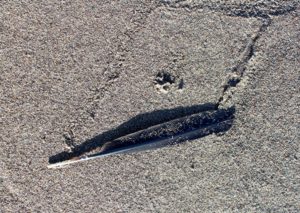 So what is an ecotherapist? Someone who practices ecotherapy, obviously.
So what is an ecotherapist? Someone who practices ecotherapy, obviously.
Well, maybe. Let’s get a little more nuanced here. There’s the simple definition, but then there’s also the identity end of things. See, “ecotherapist” can denote being something of a specialist, in the same way someone can be an art therapist. Mental health practitioners often use these specialized terms to help potential clients understand what sort of therapeutic practices they offer. And, yes, it can be a valuable marketing tool, especially for private practitioners. Let’s face it–while ecotherapy can be good for a whole spectrum of people, it often tends to attract a particular nature-loving demographic. Preaching to the choir, as it were.
And if you’re a clinician who’s just trying to offer your skills to a more general population, that granola-crunchy vibe might be a turn-off to a lot of folks. Maybe they don’t take things like biophilia and nature-deficit disorder seriously. Or maybe they think that instead of working on the actual problem, you’re just going to send them out chasing butterflies with a net or something.
So you may have very valid reasons for not advertising yourself as an “ecotherapist”. But that doesn’t mean that you can’t still work ecotherapy into your practice. You can still sneak a few nature-related questions into the intake form, maybe couching them in terms of things like outdoor recreation, gardening and the like. And if you have a client who’s really super-stressed out and needs a break, you might suggest they go for a walk outside every day, because exercise is a good stress reliever. (The nature exposure is just a convenient bonus.) Lots of people are amenable to visualization exercises for relaxation that use nature-based imagery; lots of people would love to imagine being on a warm, sunny beach by the ocean, for example.
If you get a client who seems really into these exercises and they’re clearly benefiting from them, try exploring ecotherapy a little more in your sessions together. You don’t have to push them to explore the childhood trauma of their favorite climbing tree being cut down, though, and you don’t even have to mention the word “ecotherapy”. Sometimes the best ecotherapy is that which goes unlabeled as such because it just becomes an organic part of your practice.
And maybe that’s a good end goal to work toward: that we no longer have ecotherapists, because they’ll just be “therapists”.
